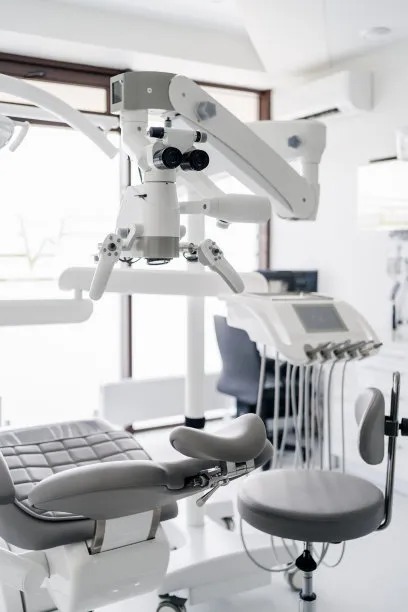Summary: Dental implants have revolutionized oral health care, providing an innovative solution for tooth loss. This article explores the numerous benefits of dental implants, such as improved aesthetics, functionality, and oral health, while delving into recent innovations that enhance the treatment process. We will examine their impact on quality of life and health, dissecting advancements that promote better integration and healing. Understanding these elements is crucial for patients considering dental implants as a means to restore their smiles and confidence.
1. Enhancing Aesthetics and Functionality

One of the most significant benefits of dental implants is their ability to enhance both aesthetics and functionality. Unlike traditional dentures, implants provide a natural appearance that closely resembles real teeth, helping patients regain their confidence. This is particularly important for those who have felt self-conscious due to tooth loss. Implants can be designed to match the color, shape, and size of surrounding teeth, ensuring a seamless integration into the smile.
Additionally, dental implants provide a level of functionality that is often unmatched by other tooth replacement options. They are anchored into the jawbone, allowing for the application of normal chewing forces without worry. This restores the patients ability to eat a wider variety of foods, contributing to a more enjoyable and nutritious diet. Overall, the reintegration of teeth through implants fosters a more natural oral experience.
The advancements in dental technology have led to improved designs and materials for implants, further enhancing their aesthetic and functional qualities. Biocompatible materials used in modern implants facilitate a better bond with bone, promoting stability and longevity, ultimately leading to enhanced patient satisfaction.
2. Promoting Long-Term Oral Health
Dental implants also play a crucial role in promoting long-term oral health. When a tooth is lost, the jawbone can begin to resorb, leading to a decrease in bone density and altering facial structure over time. Implants stimulate the jawbone, replicating the natural tooths root and helping to maintain bone mass. This dynamic process can mitigate the adverse effects of tooth loss on oral health.
Moreover, dental implants do not require the alteration of adjacent teeth, as is customary with bridges. This characteristic preserves the integrity of natural teeth, reducing the risk of future dental issues. Patients benefit from a more stable dental structure, which is conducive to maintaining overall oral health.
Regular dental visits and proper hygiene are essential after receiving implants to ensure their lasting success. However, the nature of dental implants encourages better oral care habits among patients, as they often take greater responsibility for maintaining their oral health after undergoing the procedure.
3. Innovations Streamlining the Implant Process
Recent innovations in dental implant treatments have made the overall process more efficient and patient-friendly. Techniques such as computer-guided implant surgery allow for more precise placements, minimizing the recovery time and enhancing success rates. This technology enables dental professionals to create accurate 3D models of a patient’s mouth, leading to a customized implantation strategy.
Another notable innovation is the use of immediate loading implants. This technique allows patients to receive a temporary crown on the same day as the surgery, offering both practical and aesthetic benefits. Patients can leave the office with a functional restoration, drastically reducing the psychological impact associated with tooth loss.
Advancements in materials have also contributed significantly to the development of dental implants. The introduction of zirconia implants offers a metal-free alternative, appealing to patients who are concerned about metal allergies or biocompatibility. These innovations ensure that dental implants remain at the forefront of dental technologies.
4. Impact on Quality of Life
The impact of dental implants on quality of life cannot be overstated. For many patients, the psychological benefits extend beyond aesthetics, as the return of functional teeth brings back the joy of eating and speaking confidently. Enhanced social interactions often accompany these improvements, allowing individuals to participate in gatherings without fear of their dental appearance.
Furthermore, dental implants can significantly reduce discomfort and inconvenience associated with removable dentures. Patients with implants report fewer episodes of sore spots or jaw fatigue, which are common with traditional dentures. This increased comfort can lead to a more active lifestyle and improved mental well-being.
Long-term studies indicate that those with dental implants enjoy a higher satisfaction rate compared to individuals using dentures or bridges. The commitment to improved quality of life through dental implants reflects the overall positive impact of modern dental innovations, fostering healthier and happier individuals.
Summary:
In conclusion, dental implants have emerged as a transformative solution for tooth loss, enhancing aesthetics, functionality, and promoting oral health. Innovations in the field continue to streamline the implantation process, making it more accessible and effective for patients. The profound impact on quality of life underscores the importance of considering dental implants for those seeking to restore their smiles and confidence. It is clear that dental implants pave the way for a healthier future.
This article is compiled by Vickong Dental and the content is for reference only.
Vickong Dental
Vickong Dental is a large medical group established in Hong Kong in 2008 by professors from well-known medical universities in Guangdong and Hong Kong, as well as medical doctors from key national '985' universities (including Master's supervisors and senior professors). The chain of branches brings together expert dentists with PhDs and Master's degrees from Hong Kong and Mainland China, committed to providing high-quality dental treatment.
"Vickong Dental Practices the University Motto of 'Healing and Serving Society,' with a Stable Operation for Sixteen Years. It Has Been honored with Hong Kong Enterprise Leaders's Choice,' and is a Global Trusted Implant Center for the Nobel Implant System. Recommended by Hong Kong Metro Broadcast and Guangdong Television, it Serves Customers from Over Thirty Countries and Regions, Gaining the Trust and Favor of Citizens from the Guangdong-Hong Kong-Macau Greater Bay Area and Surrounding Cities.

Thousands of customers' unanimous praise
The most recognized and highly recommended dental service by customers in the Guangdong-Hong Kong-Macau Greater Bay Area
We Ensure You Receive Detailed Care and Attention Here
Hong Kong standards, Shenzhen prices, Your Trusted English-speaking dentists

Vickong Dental Medical-Grade Instrument Disinfection Process
Vickong Dental Medical-Grade Instrument Disinfection Process

Vickong Dental Chain: A Warm and Comfortable Environment for Treatment






Appointment Hours

Q&A
Why choose Vickong Dental?
Vickong Dental practices the university motto 「Medicine to Benefit Society」, with each branch bringing together highly qualified dentists with doctoral and master’s degrees from Hong Kong and the Mainland, and has maintained seventeen years of steady operation。Recipient of 「2024 Hong Kong Enterprise Leaders Brand」, 「2025 Hong Kong Enterprise Leaders Brand」, a Nobel Biocare Global Trusted Implant Center, and a brand recommended by Metro Radio Hong Kong and Guangdong TV。
To date, we have served customers from more than thirty countries and regions,earning exceptionally high word-of-mouth recognition and trusted recommendations from residents across the Guangdong-Hong Kong-Macao Greater Bay Area and surrounding cities
We have eight major branches in Zhuhai、Shenzhen,and a consultation and service assurance center in Hong Kong,so you can book a free consultation at any time for any questions,which is very reassuring.
If I do not accept the quotation after the CT scan, will I be charged??
No! As long as the actual treatment has not started, you will not be charged any fees.
Will there be any additional charges during the treatment process?
No, there won’t be any additional charges. Before treatment begins, we will clearly explain the treatment plan and its corresponding fees. Only after the patient agrees and signs the consent form will we proceed with the dental service.
Can I pay in Hong Kong dollars?
Yes. Vickong Dental accepts payment in Hong Kong dollars. The amount will be converted based on the exchange rate of the day, and the applicable rate will be clearly communicated to you in advance.
Can I reschedule my appointment at any time?
Yes. Please contact us via **WeChat** or **WhatsApp** as early as possible, providing your original appointment time and details, along with your preferred new date and time slot for rescheduling.













